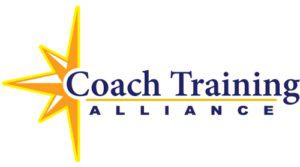C-level executives—CEOs, CFOs, CTOs, CMOs, and other top-tier leaders—bear immense responsibility within their organizations. They are the visionaries charting the company’s course, the strategists ensuring financial stability, and the influencers shaping corporate culture. Because so much rests on their decisions, these executives face unique challenges that demand targeted support and guidance. C-level executive coaching provides this vital support, offering tailored strategies that help leaders excel in high-stakes environments.
Below is an in-depth look at how C-level executive coaching can transform top-level leadership, the key areas it addresses, and what to consider when selecting an executive coaching certification program, such as the Advanced Executive Coach Certification designed to train coaches for this specialized field.
The Growing Need for C-Level Executive Coaching
1. Heightened Complexity and Accountability
C-level roles are incredibly complex. Executives must make decisions that impact the entire organization—from strategic planning and market positioning to employee well-being and stakeholder relationships. With competing priorities, limited resources, and evolving economic landscapes, having a trusted coaching partner helps leaders navigate complexity effectively.
2. Rapidly Changing Business Landscapes
Technological advances, global competition, and shifting consumer behaviors require executives to adapt quickly. C-level executive coaching focuses on developing agility and resilience, ensuring that leaders remain innovative even in volatile markets. Coaches guide executives in anticipating trends, making data-driven decisions, and fostering a culture of continuous learning.
3. Need for Personal and Professional Balance
The demands of a C-level role can easily blur boundaries between work and personal life. Persistent stress or burnout can compromise an executive’s decision-making abilities. Executive coaching addresses mental well-being and stress management, helping leaders build strategies that maintain high performance without sacrificing personal health.
Key Focus Areas of C-Level Executive Coaching
1. Strategic Vision and Alignment
Executives are responsible for guiding overall organizational direction. Coaches work with them to refine long-term strategies, ensuring these plans align with company values, market realities, and evolving technologies. Coaching also helps leaders communicate vision effectively, gaining buy-in from stakeholders at every level.
2. Leadership Style and Emotional Intelligence
Even the most brilliant strategy can falter without effective leadership. C-level executive coaching places emphasis on emotional intelligence, self-awareness, and communication skills. Leaders learn to recognize and manage their emotional triggers, empathize with diverse teams, and inspire trust. By cultivating empathy and presence, executives can guide change more smoothly and foster greater employee engagement.
3. Talent Development and Succession Planning
Executives who embrace coaching principles often become coaches themselves for their teams. They learn to identify high-potential talent, delegate responsibilities effectively, and cultivate tomorrow’s leaders. This proactive approach to succession planning not only benefits the organization but also fosters a more positive, collaborative corporate culture.
4. Resilience and Adaptability
C-level roles expose leaders to relentless pressure: major product launches, organizational restructuring, public relations challenges, and more. Coaching helps them develop resilience, providing tools to handle crises, adapt strategies, and maintain morale. Techniques might include mindfulness, scenario planning, or structured problem-solving frameworks.
5. Stakeholder Management
Modern executives must navigate a complex web of stakeholders: board members, investors, government bodies, communities, and employees. Effective communication, conflict resolution, and negotiation skills are paramount. C-level coaching targets these areas, enabling leaders to strike the right balance between transparency, diplomacy, and decisive action.
The Impact of C-Level Executive Coaching
Organizations that invest in C-level executive coaching often witness transformative outcomes. These include:
- Enhanced Decision-Making
With a clearer vision and improved strategic thinking, executives can assess risk more accurately and make smarter, faster decisions. - Stronger Corporate Culture
Leaders who practice open communication, empathy, and accountability often set a tone that resonates throughout the company, leading to stronger employee engagement and retention. - Greater Adaptability to Market Shifts
Coached executives tend to stay ahead of industry disruptions, capitalizing on emerging opportunities and mitigating threats more proactively. - Higher Return on Investment
Effective leadership at the top correlates with better financial performance, stronger market positioning, and improved stakeholder confidence. - Reduced Burnout and Turnover
When executives receive the support needed to handle stress, the organization benefits from consistent leadership and minimized turnover costs.
Becoming an Effective Executive Coach
If you’re a coach (or aspiring to be one) aiming to work with senior executives, certain skills and credentials are essential.
- Deep Understanding of Corporate Structures
Executive coaches must be well-versed in business operations, from organizational charts and governance models to financial metrics and performance indicators. This knowledge builds credibility and fosters productive coaching discussions. - Advanced Coaching Competencies
Coaching skills go beyond listening and questioning. Working with C-level leaders requires skill in conflict resolution, mindset shifts, and strategic planning. Effective executive coaches also maintain high ethical standards and confidentiality. - Industry Insights
Some coaches specialize in specific industries—tech, healthcare, finance, etc.—to provide more targeted guidance. Industry knowledge allows a coach to grasp the unique challenges and trends shaping an executive’s professional environment. - Strong Personal Presence
Executives often respond best to coaches who exude confidence and authenticity. Personal presence encompasses everything from verbal and nonverbal communication to how a coach handles complex business scenarios. - Ongoing Professional Development
As the business landscape changes, so do the demands placed on executives. Successful executive coaches continually update their knowledge, refining coaching techniques and staying informed about market trends.
Training for C-Level Executive Coaching
Enrolling in a specialized certification program helps coaches develop the nuanced skills required for working with top-level professionals. The Advanced Executive Coach Certification offered by Coach Training Alliance is one such pathway. This program:
- Equips participants with the methodologies needed to address the complexities of C-level leadership.
- Provides frameworks for goal setting and measurement, which are vital in tracking leadership development.
- Emphasizes ethical guidelines and confidentiality, critical for high-stakes executive relationships.
- Fosters a peer community that offers ongoing support and collaboration opportunities.
Choosing the Right Executive Coaching Path
While C-level executive coaching is highly rewarding, it also requires a commitment to continuous learning and an ability to navigate intricate, high-pressure situations. Whether you’re an established coach expanding your services to an executive audience or a professional pivoting to coaching, consider the following:
- Qualifications
Seek credible training that offers a blend of theory and hands-on practice. - Mentorship and Peer Support
Look for programs that include mentor coaching and opportunities to network with industry peers. - Alignment with Your Strengths
Focus on developing a coaching niche that aligns with your background—whether that’s finance, marketing, or general leadership.
Empowering Leadership at the Highest Level
C-level executive coaching isn’t merely about giving advice or serving as a sounding board. It’s about co-creating strategies with leaders who command broad organizational influence, helping them sharpen their vision, adapt to shifting landscapes, and lead their teams with integrity. The ripple effect of effective executive coaching touches every part of a company, influencing workplace culture, employee satisfaction, innovation, and, ultimately, the bottom line.
Through specialized programs like the Advanced Executive Coach Certification, coaches can gain the advanced skills and insights necessary to guide top-tier leaders toward sustainable excellence. As businesses continue to evolve in complexity, the role of C-level executive coaches grows increasingly pivotal—shaping the decision-makers who steer organizations through both challenges and opportunities.

